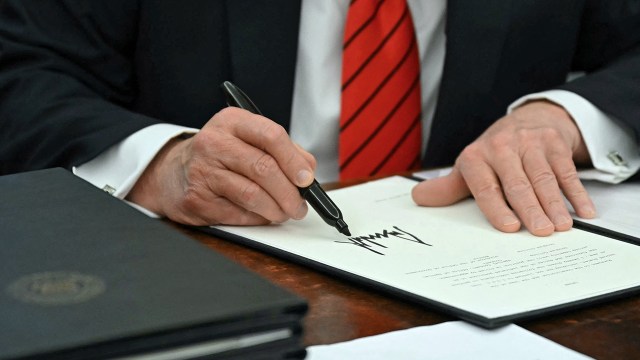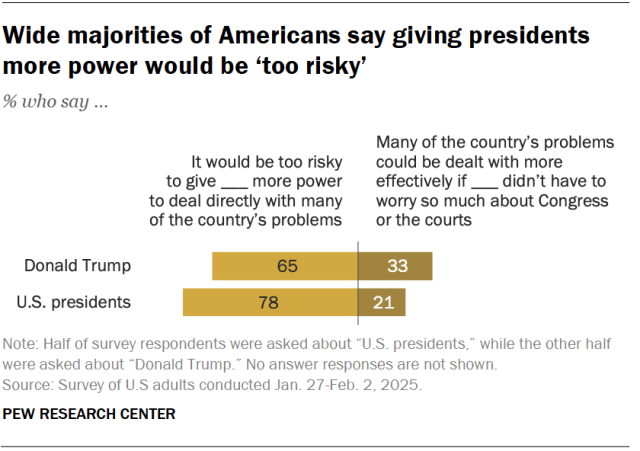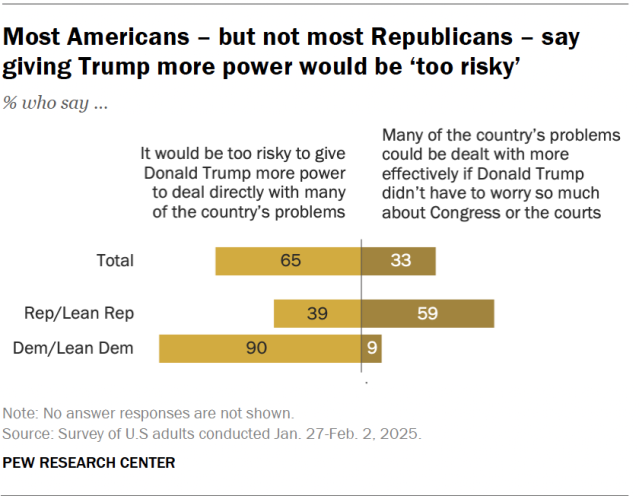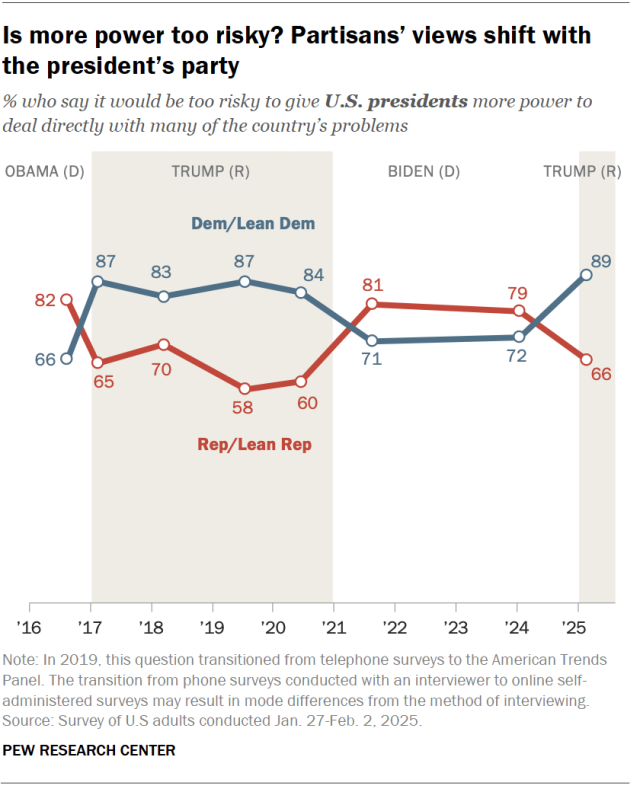
In his first few weeks in office, President Donald Trump has moved quickly to assert – and attempt to expand – the power of the presidency. He has issued a record number of early-term executive orders and taken accompanying actions, many of which face legal challenges.
But a new Pew Research Center survey finds that Americans are skeptical about expanding the scope of presidential powers – both for Trump specifically and for presidents in general:

- 65% of U.S. adults say it would be “too risky” to give Trump more power to deal directly with many of the nation’s problems. Just 33% take the view that “many of the country’s problems could be dealt with more effectively if Trump didn’t have to worry so much about Congress or the courts.”
- Even more Americans – 78% – express concerns about expanding presidential power when asked about U.S. presidents in general.
Would it be ‘too risky’ to expand Trump’s presidential powers?

An overwhelming majority of Democrats and Democratic leaners (90%) view the prospect of expanding Trump’s presidential power as too risky.
In contrast, a 59% majority of Republicans and Republican-leaning independents say many of the country’s problems could be addressed more effectively if Trump didn’t need to worry so much about Congress or the courts.
Republicans who say they “strongly” identify with the GOP are particularly likely to say the nation’s problems could be more effectively addressed by giving Trump more power: 78% say this. This compares with about half of both Republicans who less strongly identify with the party (46%) and independents who lean Republican (47%).
Note: This survey was conducted from Jan. 27 to Feb. 2, before some of the Trump administration’s most recent executive actions aimed at reducing the size of the federal workforce.
Would it be ‘too risky’ to expand the powers of the presidency in general?
In general, majorities of both Republicans and Democrats are skeptical about giving U.S. presidents more power. However, their opinions tend to shift depending on which party controls the presidency.

Republicans are now less likely to see expanded presidential power negatively than they were last year. When Democrat Joe Biden was president, more than three-quarters of Republicans said it would be too risky to expand presidential power.
Currently, 66% say giving U.S. presidents more power would be too risky. This is similar to the shares who said this throughout much of Trump’s first term.
Democrats’ views have moved in the opposite direction. Today, 89% say it’s too risky to give presidents more power. That is on par with Democrats’ views during Trump’s first term, but up 17 percentage points from last year (during Biden’s presidency).
Note: This is an update of a post originally published on Feb. 28, 2024. Here are the questions used for this analysis, along with responses, and its methodology.
